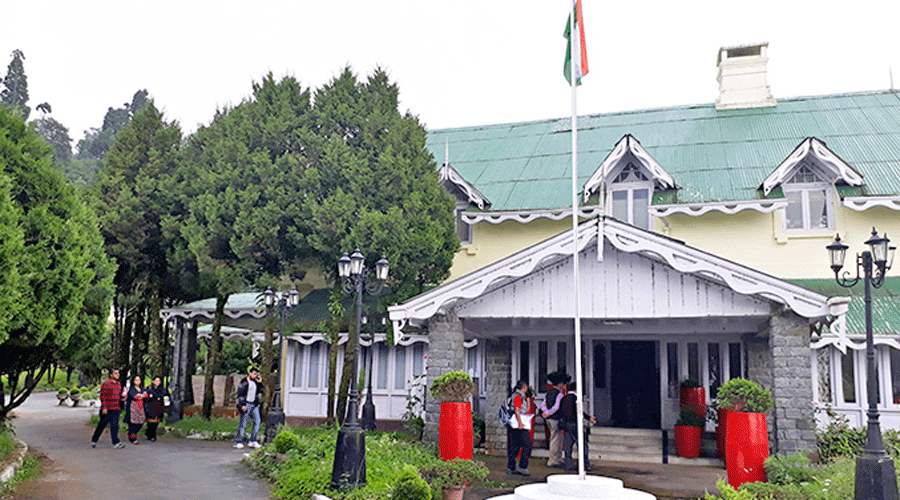The Joint Forum, a conglomeration of around20-odd tea garden unions, has decided to demonstrate at Lal Kothi, the headquarters of Gorkhaland TerritorialAdministration (GTA), and threatened to move court seeking distribution of the GTAchairman’s relief fund.
The fund was set up by Anit Thapa as the GTA-nominated head, on March 24, 2020, purportedly to take up the taskof “paying tea garden workersduring lockdown”. Over 11,000 people contributed Rs 2.12 crore and Thapa announced that the GTA would contribute a matching amount.
However, unlike other sectors in the country, the tea industry remained shut only from March 25 to April 9 in 2020. Hence, with tea gardens operating during the pandemic, the fund’s express purpose was defeated.
“We demand that the amount be distributed among the workers. We will soon demonstrate at Lal Kothi, and if needed, file a case pressing heating charges,” Sunil Rai, Joint Forum spokesperson, said in his address at a protest meeting organised by HamroParty on the premises of Capital Hall in Darjeeling.
Last year, the GTA formed a 15-member committee comprising representatives of trade unions to decide on ways to utilise the fund. Consensus, however, proved elusive.
The GTA then announced that the hill body would construct a “Shramik Bhavan” in Siliguri with the amount. Opposition parties contested the decision.
“It is the duty of the government to build a ShramikBhavan.... government funds should be used for this purpose,” said Rai, adding that workers should directly get the benefit of the fund.
Thapa said he would go to workers for their opinion on using the fund.
“We hear their leaders have signatures that are not genuine (in favour of ShramikBhavan). We, too, have collected signatures (against the construction) and our signatures are genuine,” said Rai.
Union leaders of Thapa’sBharatiya Gorkha Prajatantrik Morcha (BGPM)maintain that workers would get a paltry sum if it is distributed among workers and hence want the bhavan.
The 87 tea gardens in the hills employ around 55,000 permanent workers and 15,000 temporary ones.











